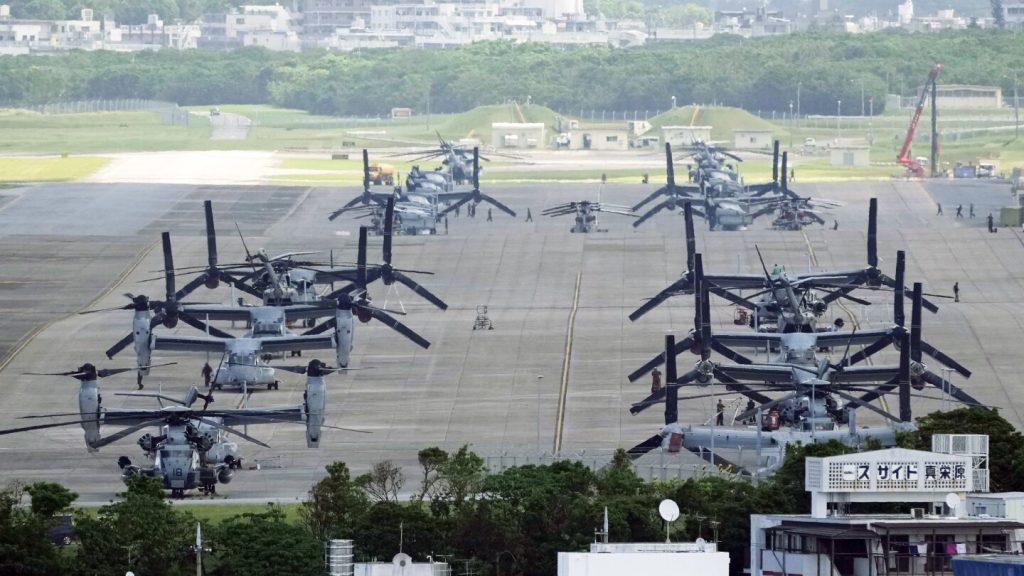Japan has grounded its fleet of V-22 Osprey aircraft following an incident where one of the aircraft tilted unexpectedly and hit the ground during takeoff. The V-22 was participating in a joint U.S. military exercise called Keen Sword and carrying 16 passengers, including three U.S. service members. The aircraft became unstable during takeoff, swaying from side to side, causing the left wing to come into contact with the ground and resulting in damage to the aircraft. This incident marks the first major incident involving Japan’s V-22 fleet since a crash last November that led to a grounding of the entire fleet.
The Osprey’s use has been controversial, particularly in Okinawa, where residents have raised concerns about its safety record. Despite the incident last Sunday, where the Osprey was able to land safely and no injuries were reported, Japan has decided to keep its fleet of over a dozen V-22s grounded while it investigates the incident. Defense Minister Gen Nakatani stated that they believe there is no safety problem with Ospreys, but ensuring flight safety is a priority for aircraft operations. The Pentagon’s V-22 joint program office is providing support for Japan’s investigation into the incident, which occurred during a joint exercise on the Japanese island of Yonaguni, located east of Taiwan.
The V-22 Osprey, a hybrid helicopter-aircraft, resumed flight operations earlier this year after a monthslong grounding following the crash last November. Japan’s decision to ground its fleet once again demonstrates the sensitivity and caution with which they are approaching this incident, given the history of accidents involving this aircraft. The Pentagon’s involvement in the investigation underscores the international cooperation required to ensure the safety and reliability of military aircraft, especially in joint exercises like Keen Sword. Japan’s commitment to safety and thorough investigation is commendable and reflects their dedication to maintaining a high standard of aircraft operations.
While the incident last Sunday did not result in any injuries, the damage to the V-22 Osprey and the potential risks associated with its operations highlight the need for continued vigilance and oversight in military aircraft operations. The controversy surrounding the Osprey’s safety record, particularly in Okinawa, further underscores the importance of addressing public concerns and ensuring transparency in the investigation process. Japan’s decision to ground its fleet while investigating the incident is a responsible and precautionary measure to ensure the safety of their personnel and the integrity of their aircraft fleet. The outcome of the investigation and any subsequent actions taken will be crucial in restoring confidence in the V-22 Osprey and addressing concerns about its safety and reliability.


